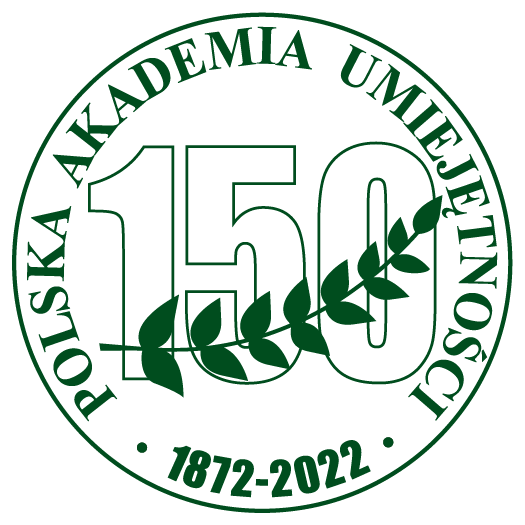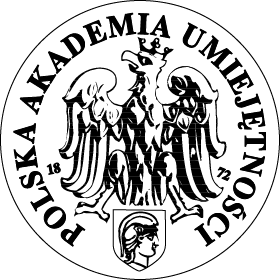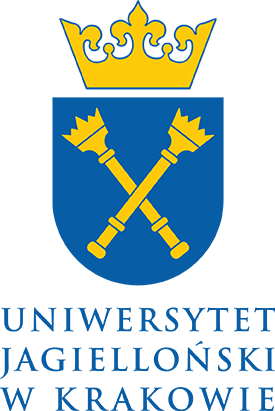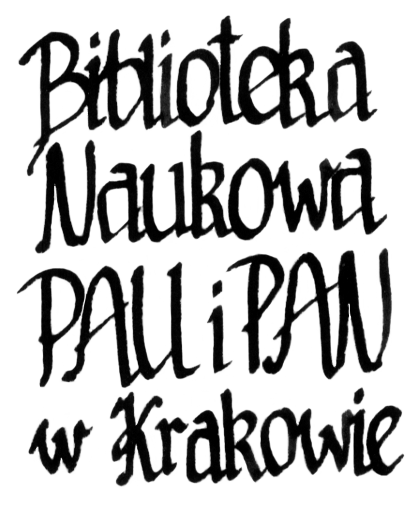
THE WORLD FACING NEW CHALLENGES
The International Scientific Conference
to celebrate the 150th anniversary of the Polish Academy of Arts and Sciences
on 18–20 October 2022
The Polish Academy of Arts and Sciences (PAU), since its inception in 1872, has been an integrating factor for the Polish academic community, in the name of development and dissemination of science. Operating on a nationwide scale (on the entire territory of the pre-partition Poland) even at the time of the partitions of Poland, it was breaking down the barriers and reaching out to the largest centres of the Polish diaspora. Reactivated in 1989, after 35 years of suspension of its activities imposed by communist authorities, the PAU is very active in three major areas: organises and supports scientific research; integrates scientific communities and presents results of the scientific research to the society and promotes attitudes related to them.
The year 2022 marks the 150th anniversary of transforming the Krakow Scientific Society into the Academy of Arts and Sciences, now called the Polish Academy of Arts and Sciences.
It is our wish to celebrate the 150th anniversary of PAU by organising an international conference “The World Facing New Challenges” on 18–20 October 2022. We secured participation of the most distinguished representatives of various academic fields – the majority of them are members of the Polish Academy of Arts and Sciences – in the conference. They will present the latest scientific achievements in their respective fields to form a diagnosis of the state of the international society in the situation of the pandemic, ecological crisis and the undermining of traditional values. During the main plenary session on 18 October 2022 the following speakers will take the floor: Mark Brzeziński, Ambassador of the United States to Poland, Prof. Timothy Garton Ash, Prof. Sir Leszek Borysiewicz, Prof. Magdalena Żernicka-Goetz and Ms. Laura Spinney. The current situation seems to require a comprehensive diagnosis and presenting possible solutions to the most important problems.
On 19–20 October 2022, panels on various topics will be held as part of further celebrations of the 150th anniversary of the Polish Academy of Arts and Sciences.
During the panel Climate, Nature and Man in the Anthropocene the discussed topics will include climate warming and the necessity to decarbonise the economy in order to achieve climate neutrality by 2050. Man has a significant impact on the current environment; hence we call the contemporary geological epoch the Anthropocene. What will happen to species? We talk about mass extinction and compare it to extinctions of the past. Human pressure is causing the number of species to decline. The natural environment is shrinking and weakening. And how do people behave under these conditions? Can they limit their destructive activity? Can they adjust to climate changes and to the processes of species extinction? Another topic will be brain imaging and whether it can tell us something about the condition and the past of man. The lecturers in this panel will be distinguished experts from Poland and abroad: Prof. Szymon P. Malinowski, Prof. Jan Kozłowski, Prof. January Weiner, Prof. Michal K. Kamiński, Prof. Alicja Jóźkowicz, Prof. Richard Frackowiak.
In the panel 150 Years of Modern Medicine Prof. Jerzy Kupiec-Węgliński from the University of California in Los Angeles will talk about the future of transplantology. Prof. Marek Radomski from the University of Saskatchewan, Canada, who commented on the pandemic in the Canadian mass media, will speak on the triumphs and doubts connected with the progress of sciences on infectious diseases. Prof. Józef Dulak will present therapeutic options of using stem cells and successes and threats connected with this method. Prof. Barbara Przewłocka, a pharmacologist and world-renowned researcher of mechanisms of pain, will speak on these mechanisms, possibilities of treatment and new drugs in pain management. Prof. Andrzej Pająk, an epidemiologist, who has conducted a large study on Poland’s population, will try to convince us to modify risk factors for cardiovascular diseases. And the last lecturer in the panel will be Prof. Rafał Ryguła who specializes in the topic of fake news in the context of medical issues.
Undoubtedly, one of the biggest challenges at the moment is understanding the fourth technological revolution. After the age of steam, electricity, computers, we have entered the era of analysing large amounts of data sets. It is already clear that only artificial intelligence can handle that. Maybe even quantum computers. Our panel Real and Virtual Reality, Artificial Intelligence will focus precisely on this topic. We will present threats, expectations and hopes connected with artificial intelligence, augmented reality and virtual reality.
We have invited to our session eminent specialists in the field of artificial intelligence and human interactions with the digital world: Prof. Krzysztof Cios, Prof. Krzysztof Diks, Prof. Jan Kreft, Prof. Rafał Maciąg, Prof. Grzegorz J. Nalepa and Stefan Życzkowski. They will show us a diverse and competently presented vision and try to answer different questions, for instance, whether artificial intelligence can free us from work or whether it can save someone’s life.
The Covid 2019 pandemic was not the first plague that affected the mankind. To the contrary – in the Middle Ages and modern times epidemics recurred from time to time and caused numerous fatalities but also brought about significant changes in social relations, in culture as well. This subject matter will be discussed during the panel Pandemic and Culture. Distinguished scientists will participate in this panel: Prof. Dariusz Czaja, Katarzyna Pękacka-Falkowska, Ph.D., Prof. Krzysztof Loska, Prof. Piotr Krasny, Prof. Maria Poprzęcka. Their papers should help us understand how the pandemic, which we have just experienced or perhaps are still experiencing, is influencing and will influence the development of contemporary culture. Robert Piaskowski will share his practical knowledge on the culture in Krakow during the pandemic.
We hope that many people – not only from the academic circles – will be interested in a broad range of information discussed in the conference presentations. The vast majority of the knowledge referred to in the lectures has a direct practical application, applicable on a daily basis (pro-environmental attitudes, recommendations in the context of disease-related threats, recommendations on benefits and threats generated by digital technologies).
website:
| ORGANISER | ||
 |
||
| HOST CITY | ||
| GOLDEN PATRON OF THE 150TH PAU ANNIVERSARY | ||
| SPONSOR | ||
| SUPPORTING PARTNER | ||
| CO-ORGANISERS | ||
    |
||
| MEDIA PATRONS | ||
www.krakow.pl, business.krakow.pl/nauka, facebook.com/BiznesiNaukawKrakowie



